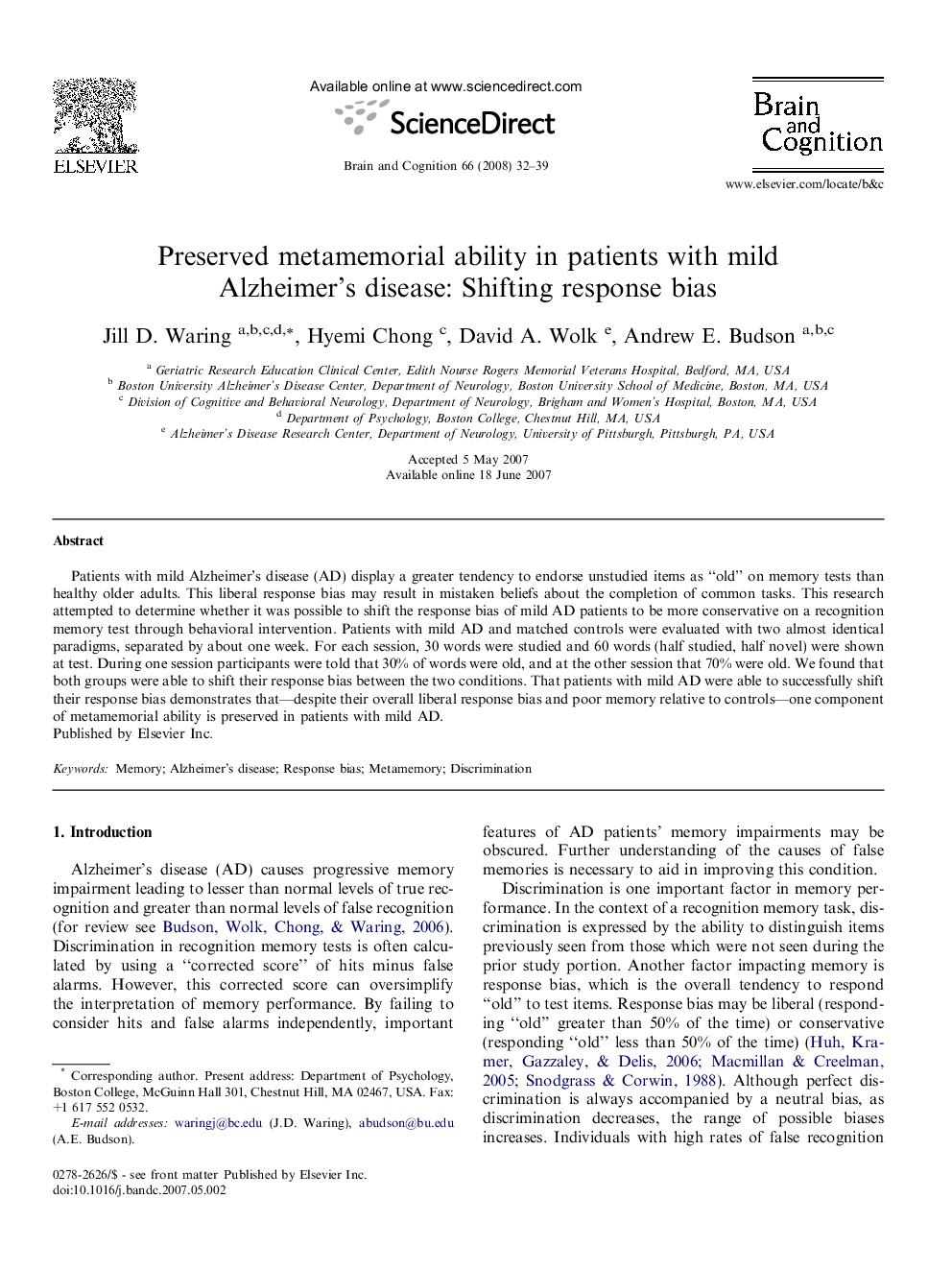| Article ID | Journal | Published Year | Pages | File Type |
|---|---|---|---|---|
| 924359 | Brain and Cognition | 2008 | 8 Pages |
Patients with mild Alzheimer’s disease (AD) display a greater tendency to endorse unstudied items as “old” on memory tests than healthy older adults. This liberal response bias may result in mistaken beliefs about the completion of common tasks. This research attempted to determine whether it was possible to shift the response bias of mild AD patients to be more conservative on a recognition memory test through behavioral intervention. Patients with mild AD and matched controls were evaluated with two almost identical paradigms, separated by about one week. For each session, 30 words were studied and 60 words (half studied, half novel) were shown at test. During one session participants were told that 30% of words were old, and at the other session that 70% were old. We found that both groups were able to shift their response bias between the two conditions. That patients with mild AD were able to successfully shift their response bias demonstrates that—despite their overall liberal response bias and poor memory relative to controls—one component of metamemorial ability is preserved in patients with mild AD.
